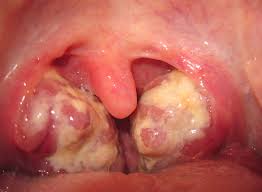pus
英 [pʌs]
美 [pʌs]
- n. 脓;脓汁
- n. (Pus)人名;(匈)普什
星级词汇:

中文词源
pus 脓
来自拉丁语pus,脓,疮口,来自PIE*pu,膨胀,肿胀,腐烂,腐化,词源同putrid,pustule.
英语词源
- pus
-
pus: [16] English borrowed pus from Latin pūs, which was descended from the prehistoric Indo- European base *pū- (source also of English foul and Latin puter ‘rotten’, from which English gets putrid [16]). Its stem form pūr- has given English purulent [16] and suppurate [16]. The Greek relative of Latin pūs was púon ‘pus’, from which English gets pyorrhoea [18].
=> foul, purulent, putrid, pyorrhoea, suppurate - pus (n.)
- late 14c., from Latin pus "pus, matter from a sore;" figuratively "bitterness, malice" (related to puter "rotten" and putere "to stink"), from PIE *pu- (2) "to rot, decay" (cognates: Sanskrit puyati "rots, stinks," putih "stinking, foul, rotten;" Greek puon "discharge from a sore," pythein "to cause to rot;" Lithuanian puviu "to rot;" Gothic fuls, Old English ful "foul"), perhaps originally echoic of a natural exclamation of disgust.
权威例句
- 1. The wound had not healed properly and was oozing pus.
- 伤口未真正痊瘉,还在流脓.
- 2. The wound is still discharging pus.
- 这伤口仍在流浓.
- 3. The wound discharges pus.
- 伤口流脓.
- 4. Disfiguring subcutaneous lesions bulge onto the surface and at intervals discharge pus.
- 皮下损害的形象是向表面凸起,并间断地分泌出脓液.
- 5. The bandage, stiff with pus and blood , was stuck fast to the torn muscles.
- 绷带上满是脓血, 紧粘在血肉上.